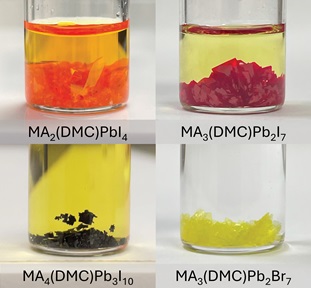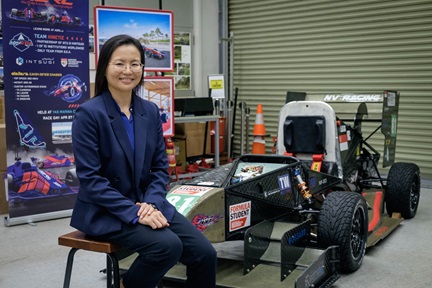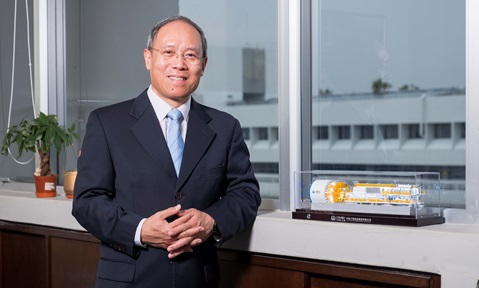Surfers of the machine revolution: Assoc Prof Kelly Ke
Assoc Prof Kelly Ke develops machine learning tools that drive positive impact in various fields.

Machine learning techniques that enable computers to learn like humans have rapidly advanced the ability of AI to accurately make predictions from large amounts of input data. Machine learning algorithms have been used to solve problems ranging from identifying spam mail to enabling autonomous vehicles to sense and respond to road situations.
Tapping the power of smart machines to solve real-world problems, Assoc Prof Kelly Ke from NTU’s School of Computer Science and Engineering is driving positive impact in various socio-economic sectors by collaborating with experts and practitioners from engineering, neuroscience, education, biology and environmental sustainability.
One of Assoc Prof Ke’s projects is a collaboration with leading power systems company Rolls-Royce to aid the design of efficient engines.
Problems in air flow can potentially damage engines and are therefore undesirable. For example, spirals of air, called vortices, can form at engine inlets and suck debris into the engine, affecting its performance. Likewise, the separation of air flow from the body of the engine – known as flow separation – can lead to an increase in drag, slowing the vehicle or aircraft down.
To proactively address these issues, Assoc Prof Ke developed a machine learning tool that automatically detects and tracks features such as vortices and flow separations around an engine using computer simulations.
The tool has since been incorporated into Rolls-Royce’s analysis toolkit as used by engineers worldwide, advancing best practices in the analysis of flow data and providing prompt feedback during the design process. Six United States and United Kingdom patents have been filed and three have been granted for the innovation.
In a collaborative project with the University of Auckland, Assoc Prof Ke is also using machine learning algorithms to help medical experts analyse magnetic resonance imaging scans. This initiative is part of the Singapore Data Science Consortium set up by the National Research Foundation, Singapore.
The researchers in Assoc Prof Ke’s team have developed cutting-edge data analysis approaches for modelling and analysing brain images. They aim to identify connective patterns in the brain that may be linked to conditions such as autism, Alzheimer’s disease and other ageing-related neurological conditions. Such patterns may reveal subtle characteristics in human brains at the initial stages of these conditions, even before observable symptoms surface.
Assoc Prof Ke hopes that this research will enable physicians to diagnose and treat these conditions earlier, contributing to healthy ageing.
Assoc Prof Ke has published over 60 research papers in renowned journals and conferences. She has also served as a member of and journal reviewer on several committees of professional computer science societies.
“Little can compare with the experience of being a researcher and I am encouraged when the technologies I develop are adopted as tools in the industry,” says Assoc Prof Ke. “I am excited about the potential of machine learning technologies to transform our daily lives.”
The article appeared first in NTU's research & innovation magazine Pushing Frontiers (issue #22, August 2023).



.tmb-listing.jpg?Culture=en&sfvrsn=29c7e020_1)
.tmb-listing.jpg?Culture=en&sfvrsn=55153609_1)


